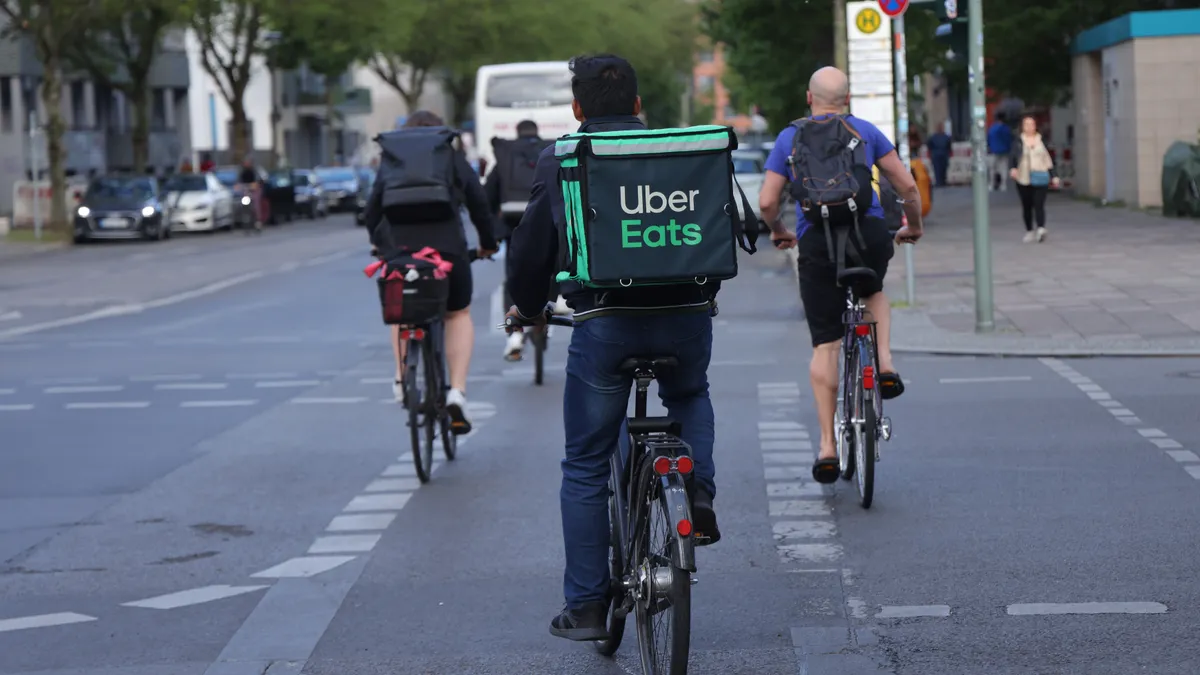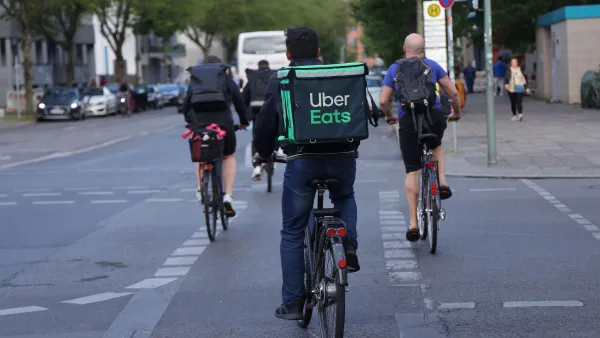Dive Brief:
- A Massachusetts court Tuesday ruled Commonwealth Attorney General Maura Healey erred in certifying petitions to put two ballot initiatives, which would classify ride-share and app-based delivery drivers as independent contractors, on the ballot in Massachusetts. Uber and DoorDash backed the initiatives.
- The court held the initiatives included disparate and unrelated policy changes, and could not, according to Massachusetts law, be placed on the ballot. The proposed initiatives were identical, save for a section in one that regulated paid driver safety training.
- Ride-share companies and delivery aggregators, including Uber and DoorDash, donated more than $17 million to a referendum committee backing the initiatives, which were similar to California’s controversial Prop 22.
Dive Insight:
Classifying workers as independent contractors has emerged as a major point of contention between businesses and labor in the last two decades. But the political battle has been most dramatic over the classification of app-based drivers and delivery workers.
In 2020, major gig employers spent more than $200 million to smooth the passage of California’s Prop 22 — 10 times as much as opponents raised. Prop 22 exempted third-party delivery platforms from reclassifying drivers as employees, and passed in 2020 before a California judge overturned the law, ruling it unconstitutional. Uber and DoorDash, along with other aggregator platforms and ride-share firms, claim this reversal will drive higher prices and longer wait times for consumers.
Like the companies in favor of Prop 22, Flexibility & Benefits for Massachusetts Drivers argues that delivery workers and ride-share drivers want to remain independent contractors while receiving benefits the Massachusetts ballot initiatives would have established. These benefits include occupational accident insurance and a healthcare stipend.
But not all workers seek to retain their contractor status.
“This is an enormous victory for drivers like me who only want the ability to work hard for fair wages. This ruling is a major step forward in our fight to be recognized as employees and be compensated fairly,” Martin El Kousa, an Uber driver and one of the plaintiffs in the suit against the initiatives, said in a statement.
Flexibility & Benefits for Massachusetts Drivers, which received more than $1 million from DoorDash; nearly $1 million from Uber; over $1 million from Instacart; and more than $14 million from Lyft in the last five months of 2021, said the court’s decision to block the initiatives could harm business.
“The future of these services and the drivers who earn on them is now in jeopardy,” Flexibility & Benefits For Massachusetts Drivers wrote in an emailed statement to Restaurant Dive.
Opponents of the initiatives, led by the “Massachusetts is not for sale” coalition, celebrated the court’s decision.
“We applaud the court’s ruling against this effort by out-of-state Big Tech CEOs to manipulate our laws in order to line their own pockets,” Steve Tolman, president of the Massachusetts branch of the American Federation of Labor and Congress of Industrial Organizations (AFL-CIO), said in a press release.
The court’s decision isn’t the end of the political fight over gig worker classification in Massachusetts, however. A law classifying gig workers as independent contractors was introduced to the Commonwealth’s House of Representatives in 2021. Healey also sued Uber and Lyft in 2020, seeking to force them to classify workers as employees, rather than contractors, under Massachusetts Wage and Hours Law.














